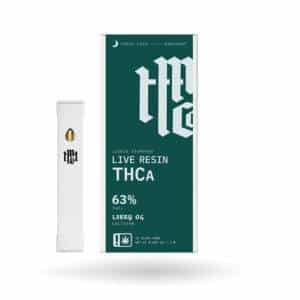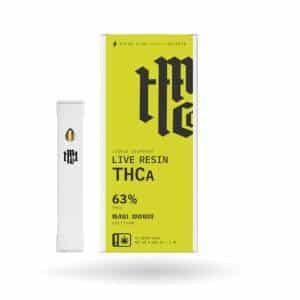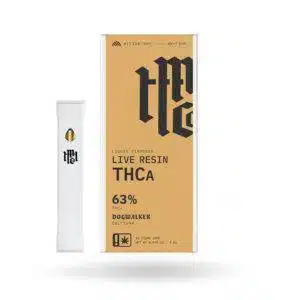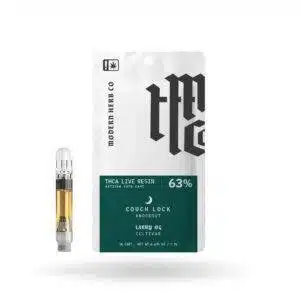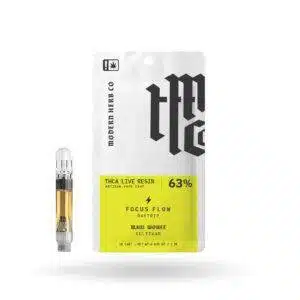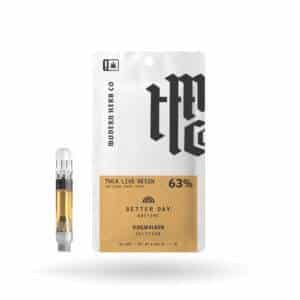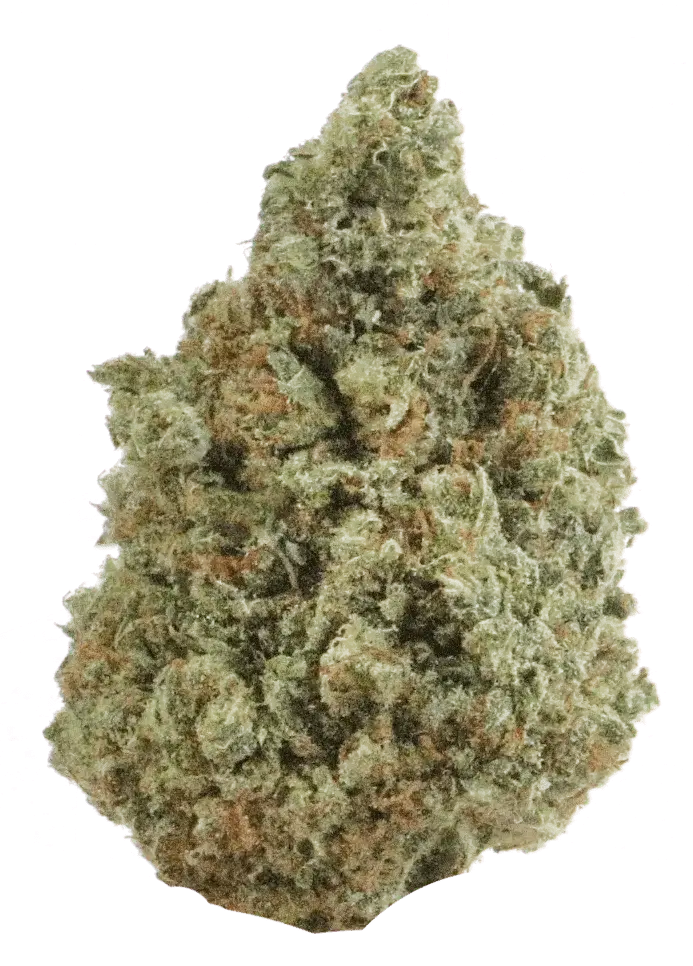DOES THCA GET YOU HIGH?

THCa is the darling of the cannabis scene these days and with good reason. But there’s a question that many people have in mind, namely, “Does THCa get you high?” If you’ve ever wondered the answer to this question or any other information about THCa, keep reading—this article is for you!
WHAT IS THCA?
- WHAT IS THCA?
- WHAT’S THE DIFFERENCE: THC VS. THCA
- HOW DOES THCA BECOME THC?
- WHAT ARE THE BENEFITS OF THCA?
- THCA PRODUCTS
- DO YOU GET HIGH FROM THCA?
- HOW DO YOU CONSUME THCA?
- WHAT IS A HIGH THCA PERCENTAGE?
- IS THCA LEGAL?
- CAN YOU DETECT THCA IN A DRUG TEST?
- CONCLUSION: YES, THCA WILL GET YOU HIGH
- WHERE TO FIND THE BEST THCA PRODUCTS ONLINE?
THCa is short for tetrahydrocannabinolic acid, which is a precursor of THC, the psychoactive cannabinoid in cannabis. THCa is found in fresh, undried cannabis, but it is converted to THC, the compound that causes the classic “high” associated with smoking cannabis when the plant material is heated or dried.
THCa has different properties and effects from THC, and it is not psychoactive by itself. THCa is popular for its potential benefits.
THCa products are legal under federal law as long as they contain less than 0.3% delta-9 THC. However, some states may have different regulations, so it is advisable to check the local laws before buying or using THCa products.
WHAT’S THE DIFFERENCE: THC VS. THCA
A tetrahydrocannabinol molecule has two different forms, THC and THCa. THC (also known as delta-9 THC or just Delta 9) is the psychoactive cannabinoid that makes you feel high, while THCa is the non-psychoactive precursor that is found in raw cannabis. Using heat or light, a process known as decarboxylation can transform THCa into THC. THCa and THC have different effects and potential benefits for the human body, although much more research is needed on both cannabinoids.
HOW DOES THCA BECOME THC?
THCa becomes THC through a process called decarboxylation, which involves removing a tiny molecule called a carboxyl group and releasing carbon dioxide. This happens when THCa is exposed to heat or, to a lesser extent, light, such as when cannabis is smoked, vaporized, or baked. The heat causes the THCa molecule to lose its acid form and transform into the psychoactive compound THC.
WHAT ARE THE BENEFITS OF THCA?
THCa has shown promise in various areas, though further research is necessary to understand its potential contributions comprehensively. It is important to note that THCa and other cannabinoids should not be considered treatments for specific conditions without consulting a qualified professional.
According to certain studies, THCa may offer a range of potential benefits, including properties that could aid in reducing certain responses associated with various conditions. It’s worth noting that the interaction between THCa and certain systems may have modulating effects. It is crucial to emphasize that more research is needed to understand the broader implications of THCa.
THCA PRODUCTS
The 2018 Farm Bill legalized hemp agriculture in the United States, making hemp and hemp products legal from coast to coast. Thanks to this groundbreaking legislation, hemp-derived cannabinoids, including THCa, CBD, and more, can be purchased from online retailers such as The Hemp Collect for home delivery to most states across the country.
A variety of THCa products are available, including smokable cannabis products such as THCa flower and THCa pre-rolls. You will also find a variety of THCa vapes, including THCa carts and THCa disposable vapes. For customers who appreciate the full flavor and effect of dabs, THCa diamonds, THCa live resin, and other concentrates such as wax, badder, shatter, and crumble are also available and ready for the vaporizer or glass rig.
All of the products mentioned so far are designed for smoking and vaping, meaning the THCa in them will be decarboxylated and converted to THC when used as intended. As a result, using such THCa products will get you high, just as if you were smoking cannabis.
Cannabis products that do not decarboxylate the THCa are also available for those who want the benefits of the cannabinoid without getting high. If you would like to try THCa without getting the typical effects of THC, look for gummies, tinctures, capsules, or other formulations that are meant to be taken orally.
DO YOU GET HIGH FROM THCA?
Yes, THCa can get you high. Using THCa products that burn or heat the compound will convert THCa to THC, the compound that is largely responsible for the psychotropic effects of cannabis. As a result, THCa flowers, pre-rolls, vapes, and concentrates will all get you high when you use them. If you’d rather enjoy THCa without getting high, try THCa oral formulations such as gummies, tinctures, or capsules.
HOW DO YOU CONSUME THCA?
Because of the variety of THCa products available on the market today, there are several THCa consumption methods available to consumers. To receive the psychoactive effects of THC from your THCa products, choose those that are heated or burned as they are used. Smokable forms of THC include THCa pre-rolls and THCa flower. Vapable options include THCa carts and THCa disposables, as well as jarred THCa concentrates, including live resin, wax, crumble, and more.
To consume THCa without converting the compound to THC and thus making it psychoactive, choose oral consumption methods. THCa tinctures are the most common, and some retailers also offer THCa gummies, capsules, and more.
WHAT IS A HIGH THCA PERCENTAGE?
The percentage of THCa that is considered high is dependent on the type of product being considered. For THCa flower, a percentage of about 15% THCa is considered reasonably potent and will get you high. However, hemp flowers with higher levels of THCa can also be found, with strains that test at least 20% and up to 25% THCa. The most potent THCa flower can register THCa levels approaching or even exceeding 30% THCa.
Vapable THCa products are generally considerably more potent than THCa hemp flower. At The Hemp Collect, our live resin THCa vapes and THCa disposables all test at 63% THCa, plenty of the cannabinoid to get a good cannabis buzz.
IS THCA LEGAL?
Yes, THCa is legal under the 2018 Farm Bill, which legalized hemp and hemp products. According to the legislation, cannabis plants with less than 0.3% delta-9 THC are legal hemp, as are products made from the plant.
The legal status of THCa depends on the federal and state laws that regulate cannabis and its derivatives. THCa is the precursor of THC, the psychoactive cannabinoid that is illegal under federal law except for medical purposes. THCa itself is not psychoactive, and it is not listed as a controlled substance by the U.S. Drug Enforcement Administration (DEA).
Therefore, THCa products that are derived from hemp and contain less than 0.3% delta-9 THC are legal under the 2018 Farm Bill. However, some states may have different regulations regarding THCa and other hemp-derived cannabinoids. Therefore, it is advisable to check the local laws before buying or using THCa products, as they may vary depending on the state.
CAN YOU DETECT THCA IN A DRUG TEST?
Yes, some drug tests for cannabis use can detect THCa. Nevertheless, THCa differs from THC in its characteristics and effects, and standard drug tests may not be as effective in identifying it.
More specifically, products that decarboxylate THCa into THC when they are used are very likely to return a positive result on a drug test for cannabis use. Some drug tests may be able to detect THCa itself, depending on the sensitivity of the test and the amount and frequency of cannabis use.
The purpose of a drug test is generally to detect the presence of certain substances within the body or their metabolites. In the context of cannabis use, most drug tests primarily focus on THC metabolites, especially THC-COOH, which is a key indicator of recent cannabis exposure. THC-COOH is produced when THC is metabolized in the liver and then excreted in the urine. However, THCa does not produce THC-COOH until it undergoes decarboxylation, a process that involves heat or light. Therefore, the raw, unheated form of cannabis containing THCa may not trigger a positive result on a drug test.
However, the detection of THCa on a drug test may depend on several factors, such as the type of test, the sensitivity of the test, the amount and frequency of cannabis use, the potency and quality of the cannabis product, and the individual’s metabolism and body fat. Different types of drug tests, such as urine, blood, saliva, and hair tests, have different detection windows and cutoff levels for THC and its metabolites.
For instance, depending on the cutoff level, urine tests, which are among the most widely used drug tests, can detect THC-COOH up to 30 days after chronic use and up to 3 days after a single use. However, since THCa has been found in some studies to be present in cannabis users’ urine samples, urine tests may also detect THCa itself. The amount of THCa in the cannabis product, how it was consumed, and how long it has been since the last use can all affect the likelihood of finding THCa in urine.

Blood tests, which are often used to measure impairment or intoxication, can detect THC and its metabolites for up to 24 hours after a single use and up to 7 days after chronic use. However, blood tests are less likely to detect THCa, as THCa is rapidly converted to THC in the bloodstream.
Saliva tests, which are also used to measure impairment or intoxication, can detect THC and its metabolites for up to 24 hours after a single use and up to 72 hours after chronic use. However, saliva tests are also less likely to detect THCa, as THCa is not readily absorbed in the oral cavity.
THC and its metabolites can be detected in hair for up to 90 days after last use, which makes hair tests useful for measuring long-term cannabis use. However, hair tests are also less likely to detect THCa, as THCa is not incorporated into the hair shaft.
Because it depends on a number of variables, the answer to the question “Can THCa be detected by a drug test?” is, therefore, not simple. Since most drug tests look for the presence of THC metabolites, which are not produced by THCa until it is heated and converted to THC, THCa in its raw, unheated form is unlikely to result in a positive result.
CONCLUSION: YES, THCA WILL GET YOU HIGH
As we’ve learned, THCa can get you high when it is heated or burned, such as when you smoke THCa pre-rolls or flowers, or when you vape the cannabinoid by using THCa Carts, THCa Disposables, or jarred concentrates such as THCa live resin. Consumers who use these products should be aware of their psychotropic effects and exercise care.
WHERE TO FIND THE BEST THCA PRODUCTS ONLINE?
For the best THCa products, choose a retailer with a reputation for quality products and ethical service, such as The Hemp Collect. It is our mission to spread knowledge and plant medicine to communities around the world through our team of passionate people, friends, and cannabis experts. Using our cannabis background and expertise, we set out to create the highest-quality goods on the market. In a sea of mediocre options that were often unsafe or ineffective, we wanted to do better for consumers. Our products have been developed based on high-quality inputs and have undergone rigorous research and development.
One way to confirm you are working with a reputable retailer is by confirming a certificate of analysis (COA) is available for the product you are buying. A COA certifies that a qualified analytical laboratory has tested the product for purity and potency. Be sure to check the COA and confirm that the potency matches what is printed on the package and that the product has passed tests for contamination, such as heavy metals, pesticides, bacteria, or mold.
When it comes to taste and effectiveness, when it comes to safety, and when it comes to purchasing products from ethical makers who have high standards and your best interests in mind, there is no better place to go. We offer a money-back guarantee on all of our products. It can easily be returned if you are not satisfied with it. Our goal is to continually improve as a result of your feedback. We strive to ensure that we consistently meet your needs by learning from your experiences.
At The Hemp Collect, we sell THCa products to our customers aged 21 and up for delivery in the states of Alabama, Arizona, Arkansas, Colorado, Florida, Georgia, Illinois, Kentucky, Maine, Maryland, Missouri, Nebraska, Nevada, New Hampshire, New Jersey, New Mexico, North Carolina, Oklahoma, South Carolina, South Dakota, Tennessee, Texas, Vermont, West Virginia, Wisconsin, and Wyoming.
LEARN MORE ABOUT THCA
Do you have more queries related to THCA? Here are a few THCA-related articles:
Still want to learn more? Visit our blog section or contact us for more information. Our expert support team is here to help you.

